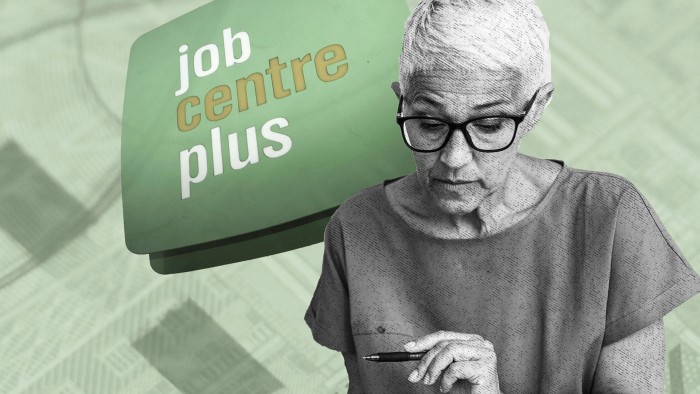Pensions cash a temptation for silver job seekers


Roula Khalaf, Editor of the FT, selects her favourite stories in this weekly newsletter.
Pension — or boob job?
I’ll admit it’s a very odd question, but the choice between saving for your future retirement and splurging on cosmetic surgery is a hot topic in Australia right now.
My colleague Josephine Cumbo, the FT’s pension correspondent and an Aussie native, alerted me to the story. Whatever your age, if you’re in financial hardship due to Covid-19, the Australian government will allow early access to money in your pension superannuation fund (commonly referred to as your “super”).
Up to A$20,000 (£10,800) can be withdrawn. Since the emergency measures were announced in March, over 2m Australians have withdrawn a total of A$32bn (£17bn) from their retirement savings, which is concerning policymakers. Politicians have warned that an estimated 600,000 people — most of them under 35 — have wiped out their savings altogether. Not so super-duper, especially when you consider the compounding benefits that younger savers will lose.
For those whose finances and businesses have been wrecked by Covid-19, getting access to your pension as a last resort could arguably be better than losing your home or being declared bankrupt. Yet there have been stories in the Australian press of a “Super Splurge” as people dip into their savings early to fund cosmetic surgery and designer shopping sprees.
I would hope that only a small minority would be daft enough to do this. But there is another group of people in the UK who are nervously considering an early raid on their pension savings. I am talking about people in their 50s who fear being made redundant.
The UK heatwave this week has been punctuated by some thunderous headlines. Not only has our economy plunged into the deepest recession on record, but nearly three quarters of a million jobs have been shed — and that’s before the impact of the furlough scheme winding up this autumn. The gloomiest economists predict 10m unemployed by Christmas.
Two separate studies suggest that workers in their 50s and 60s will be disproportionately hit. Not only are older workers more likely to lose their jobs as redundancies rise, they could also find it much harder than other age groups to get a new one.
The Centre for Ageing Better, a charity, predicts a “mid-life employment crisis”, stating that older workers who lose their jobs are twice as likely to be unemployed for a year or more than younger workers. Some, it fears, may never work a PAYE job again.
Around 2.5m of the 9m workers who have been furloughed since the start of the pandemic are in their 50s and 60s. The CAB estimates that hundreds of thousands will be unable to return to their old jobs, adding that large numbers of older women work in the “shut down sectors” of retail, hospitality and travel which will take the longest to recover.
The number of older workers seeking unemployment benefits has already doubled under lockdown, but the CAB predicts a “second wave” of unemployment in the autumn as older workers on furlough are laid off.
It’s not only jobs that will be lost. Workers who are made redundant will also lose their main source of retirement saving — employer pension contributions.
Depending on how long it takes to find another job, this could have a significant impact on their retirement savings — and depending on the wider financial picture, over-55s could well be tempted to raid their pensions.
A few years ago, I did a forecasting exercise with a financial planner, looking at how my own retirement might shape up. I said I planned on working (and making pension contributions) until I was 70. This was simple to model but spreadsheets are not capable of factoring in ageism in the workplace.
Over-55s entering the jobs market today will find advertised vacancies are still running at around half the level they were a year earlier — meaning plenty of younger (and cheaper) people will be chasing the same jobs.
Taking a job that pays less, or is unsuited to your professional skills, is an option that some of my followers on Twitter tell me they have taken. One 50-something professional worked for several blue-chip companies before setting up his own business, which has collapsed. He is now a delivery driver.
I tip my hat to him — and to other readers who are running small businesses or self-employed and taking whatever work they can find after failing to qualify for government assistance.
Ageism in the workplace is not a new trend. Plenty of older readers (many of them female) tell me they have taken redundancy in the past couple of years and started up their own consultancies. Many have found they are too recently self-employed to qualify for the chancellor’s support scheme.
The statistics also suggest that older workers, perhaps with higher levels of savings, are treading water in the hope that the economic prospects will improve.
Employment data this week show that the number of over-65s in employment dropped 11 per cent between the first and second quarters of 2020. The second study I looked at was by Rest Less, a jobs website for the over-50s. It highlights the rising number in this age range who have been classified as “economically inactive” since the pandemic began.
Founder Stuart Lewis says fear of catching coronavirus combined with the dire economic backdrop means “many over-65s have simply given up on finding a new role and have fallen out of the workforce completely”.
He says this is “devastating” to see, especially when you consider that in less than 20 years’ time, over-65s stand to make up one-quarter of the UK population.
If you’ve been made redundant and are considering unlocking cash in your pension, here are some things to be aware of.
First, you will not be able to claim means-tested benefits such as universal credit if you and your partner have savings of more than £16,000 between you. Money inside pensions is not counted as savings — but if you take your tax-free lump sum, this will count. So will redundancy money, and investments held within stocks and shares Isas, even if they are held for the long term and intended to fund your retirement.
Fabian Taylor, a financial planner at Nelsons, stresses that you don’t have to take all of your tax-free cash in one go. “It is possible to take a small tax-free lump sum at the outset and retain the ability to take further tax-free lump sums later in retirement.”
However, if you take more than the 25 per cent tax-free cash, you will trigger a tax trap called the money purchase annual allowance (MPAA). This will restrict your future pension contributions to just £4,000 per year before tax is applied, which could prove a sting in the tail when — fingers crossed — you land your next full-time job.
Claer Barrett is the editor of FT Money, and a financial commentator on Eddie Mair’s LBC drive-time show, on weekdays between 4-6pm: claer.barrett@ft.com; Twitter @Claerb; Instagram @Claerb
Comments